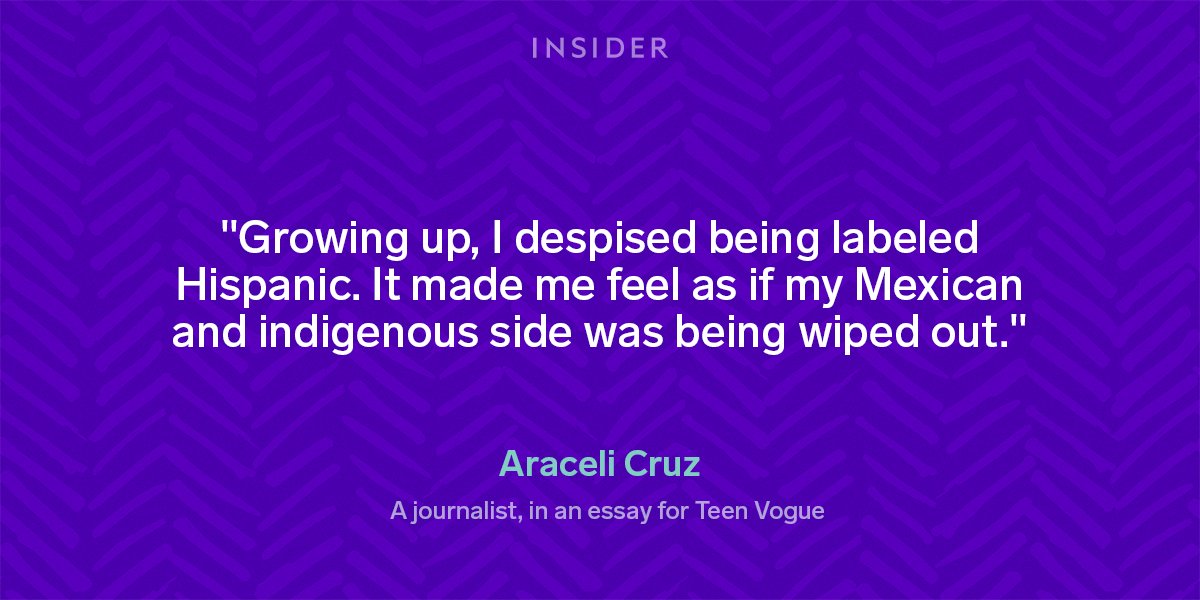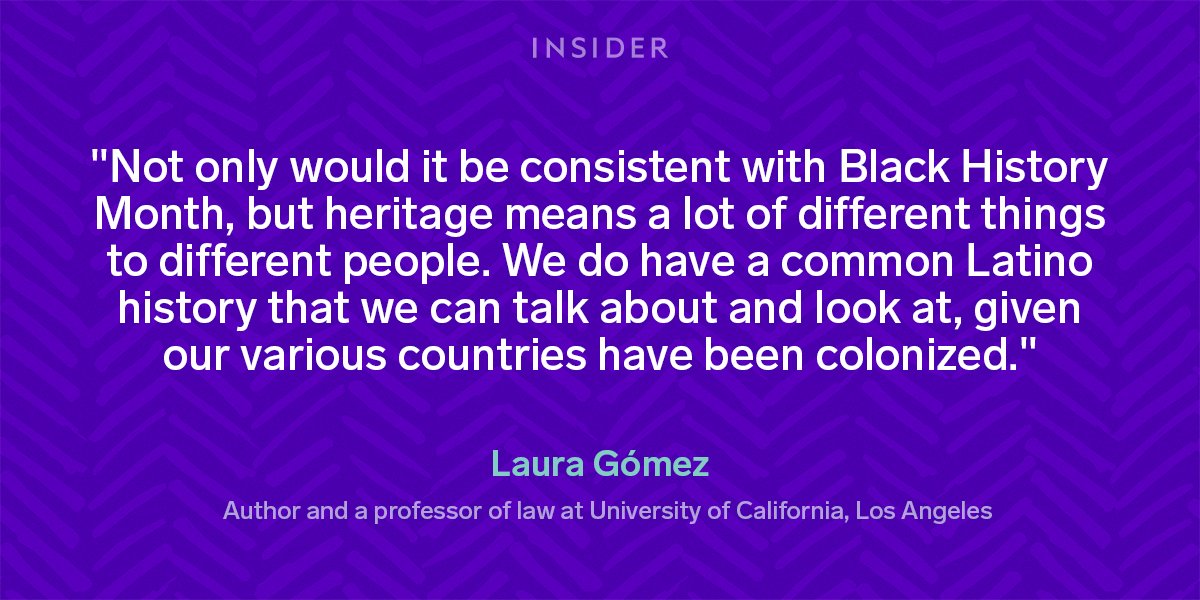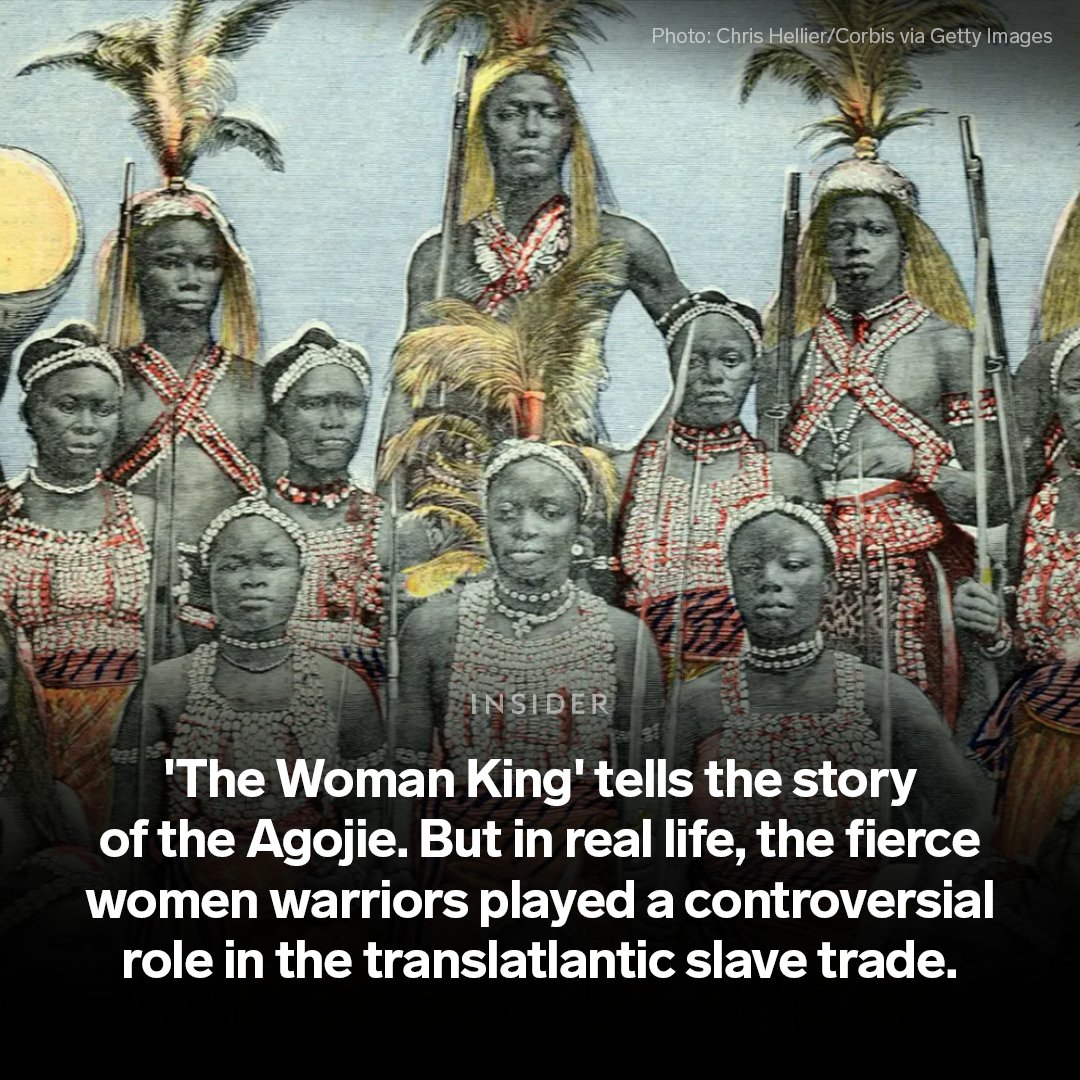#HispanicHeritageMonth is designated as an all-encompassing celebration of Latinos and their cultures. Yet, many say it falls short of that endeavor, and some are calling for the month to be reimagined.
So who really are the Latinos living in the US?
insider.com/this-hispanic-…
So who really are the Latinos living in the US?
insider.com/this-hispanic-…
Latino communities are continuously evolving, staking a greater claim in politics, Hollywood, and other industries and re-conceptualizing the way they identify.
insider.com/this-hispanic-…
insider.com/this-hispanic-…

Hispanics are now the largest ethnic and racial group in California.
Florida, Texas, and California saw their Latino populations grow by more than one million in the last 10 years. North Dakota and South Dakota have seen the fastest Latino population growth since 2010.
Florida, Texas, and California saw their Latino populations grow by more than one million in the last 10 years. North Dakota and South Dakota have seen the fastest Latino population growth since 2010.

But because these communities are so vast, celebrating their nuances during #HispanicHeritageMonth becomes difficult, said author Ed Morales.
The name Hispanic Heritage Month itself might also be deterring some people from acknowledging it.
The name Hispanic Heritage Month itself might also be deterring some people from acknowledging it.

There’s also the longstanding debate about whether to label people with Latin American roots as Latino, Hispanic, Latinx, Latine, or by the country their family is descended.
Others don't like the label ‘Hispanic’ because they think it elevates their cultures' colonization.
Others don't like the label ‘Hispanic’ because they think it elevates their cultures' colonization.

Initially, In the early 1900s, the US government labeled all Spanish-speaking people and those with Latin American roots as Mexican, even if their family did not descend from Mexico, per the Pew Research Center.
insider.com/this-hispanic-…
insider.com/this-hispanic-…
On the 1970 Census, Latino identity was expanded to include Puerto Rican, Cuban, Central or South American, and "other Spanish."
Ten years later, Hispanic became part of the public lexicon when the category was used on the 1980 Census.
insider.com/this-hispanic-…
Ten years later, Hispanic became part of the public lexicon when the category was used on the 1980 Census.
insider.com/this-hispanic-…
The categorization came about in large part because Mexican-American activists lobbied the Census Bureau to change the way Latinos were counted.
While the label marked progress in helping Latinos gain political clout, some say it contributes to their erasure.
While the label marked progress in helping Latinos gain political clout, some say it contributes to their erasure.

The term Latinx doesn't make everyone happy either. While many argue it's inclusive of people who do not adhere to the gender binary, others say the term is elitist.
Some haven't even heard of it.
insider.com/this-hispanic-…
Some haven't even heard of it.
insider.com/this-hispanic-…

So would changing the name be productive?
For author Laura Gómez, changing the name to Latino History Month would help crystallize what the month is about: honoring Latinos and drawing attention to the historical and cultural narratives about Latino communities.
For author Laura Gómez, changing the name to Latino History Month would help crystallize what the month is about: honoring Latinos and drawing attention to the historical and cultural narratives about Latino communities.

But just as the Hispanic Heritage Month can serve as a way to highlight Latinos, it can also be rife with half-baked attempts at inclusion, Angel Jones, an Afro-Latina assistant professor of education at Southern Illinois University - Edwardsville, said.
insider.com/this-hispanic-…
insider.com/this-hispanic-…

Though Hispanic Heritage Month is imperfect, many say the holiday still serves an important purpose not only in allowing Latinos to appreciate their culture amid the pressure to assimilate, but by increasing visibility of Latino communities.
insider.com/this-hispanic-…
insider.com/this-hispanic-…

As the month is underway, Voices of Color’s series ‘Mi Gente’ will continue to spotlight Latino communities and the intricacies of having Latin American roots.
insider.com/this-hispanic-…
insider.com/this-hispanic-…
• • •
Missing some Tweet in this thread? You can try to
force a refresh















